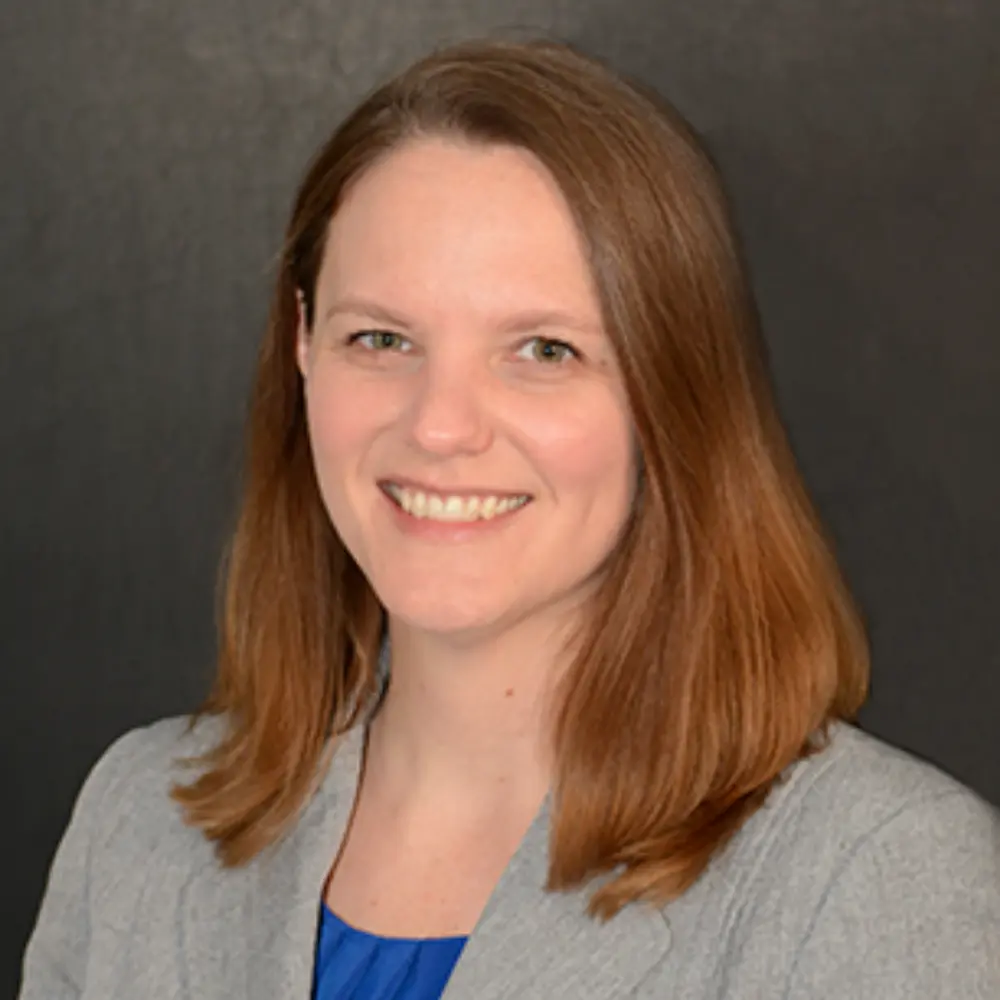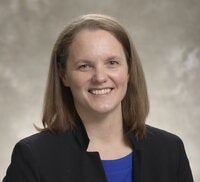
Dr. Christian-Hinman’s lab focuses on understanding the neural mechanisms linking epilepsy and comorbid reproductive endocrine disorder.
How Dr. Christian-Hinman first became interested in science
Dr. Christian-Hinman first became aware of neuroscience during her time in high school, when she was deciding where to go to college. Even though her family was not from a scientific background, exposure at Smith College in Massachusetts encouraged her to dive into the neuroscience field.
She says, “I didn’t think I would be a scientist when I was growing up. Smith had major strengths in physiology and neurophysiology, and this enabled me to have a solid base of knowledge and interest particularly in the physiological side of neuroscience.”
Her first doctoral and postdoctoral experience
Dr. Christian-Hinman’s doctoral experience in the Neuroscience Graduate Program of the University of Virginia helped her to interconnect different fields such as neuroscience and endocrinology. She was excited to learn and utilize different techniques, such as patch-clamp electrophysiology to see the firing activities of neurons, and that drove her more into the field. For her postdoctoral training at Stanford University, she focused on studying epilepsy, which is a disease of neural circuit dysfunction that produces recurrent seizures. To record seizure activity in mouse models of epilepsy, she learned how to perform electroencephalography (EEG) and other techniques that her lab now uses regularly.
She says, “At UVA, I was lucky to have a very supportive mentor and to live in Charlottesville, which is a really beautiful place. At Stanford, I was able to see science conducted at the absolutely highest level in the world. This was exciting and helped to broaden my perspective on various opportunities and modes of investigating brain function.”
Deciding to become a professor
“In college, I knew I was interested in research, and at Smith I was fortunate to join a good lab with an encouraging PI. I realized I loved the process of coming up with a question, formulating a hypothesis, designing experiments to test this hypothesis, interpreting the data, as well as the process of writing papers. Also, I could see myself teaching classes. And that’s when I decided to pursue becoming a faculty member,” Christian-Hinman says.
An average day in the life of a PI
According to Dr. Christian-Hinman, an average day can change considerably whether she is teaching a class or not. If she is teaching, she will prepare lectures, writes exams for the class, and answer various questions on the class material from students. She meets with each of the students and researchers in her lab at least once a week, reads research articles, writes and reviews grants and manuscripts, and prepares seminars and talks for meetings. She also provides advice in troubleshooting problems with lab equipment if something isn’t working right.
The latest scientific focus in the Christian-Hinman lab
“Epilepsy is a neurological disorder that causes seizures," Christian-Hinman says. "My lab studies epilepsy and neuroendocrinology, the interactions between the brain and the endocrine system. The lab focuses on how epilepsy impacts reproductive endocrine function and dysfunction. This is an area of epilepsy research for which the clinical aspects have been known for quite some time, but there is still much to be done on the basic science research side. A new aspect in the lab is to examine the role of estrogen synthesized within the brain (and not from the ovaries) in neural excitability and seizures. Estrogen has strong effects on neural activity, and estrogen synthesis in the brain has long been known, but it is still unclear how this may affect seizure susceptibility and epilepsy severity.”
How earlier work lead to this new area of research
“During my graduate studies, I learned a lot about hormonal actions in the brain, the hypothalamic control of reproduction, and techniques required to investigate neurophysiology at a cellular level," she explains. "For my postdoctoral work, I wanted to connect the cellular physiology experience gained during my PhD to understand more about how neurons work as a circuit. This led me to the field of epilepsy. Since joining MIP and starting my own lab, I’ve been able to put these experiences together. With MIP’s strengths in neurobiology and endocrinology, it is the perfect home for my lab’s research.”
Christian-Hinman's advice to young scientists and trainees
“I think one aspect that is often underappreciated for an academic career path is that there will be a lot of writing involved," she says. "You need to produce good writing to get funding for the lab and to share your work in papers. If you don’t enjoy writing, then the job becomes more difficult.”
For Dr. Christian-Hinman, she enjoys writing as it gives clarity to the topic at hand. She says the waiting period and results for grant applications and literature reviews can be stressful, but it enables the projects to move forward. It also helps in conveying ideas and result to a larger audience.
“As a lab head, one of your main focuses is to gain research funding and resources and it is intertwined with a lot of writing," Christian-Hinman explains. “For graduate students, one must train to be a rigorous scientist, learning how to formulate a hypothesis and test it. Also, they need to learn and practice the art of working in a diverse group and getting the project moving. As for postdoctoral training, one needs to be strategic about the type of research and the skills to add to your toolkit. If you are hoping to be a PI, one needs to start creating an area that is a bit unique and that is not redundant in the field.”
She emphasized that this point of view can differ slightly if you are moving away from the academic field, but strategic thinking is one key factor irrespective of career path.
Outside the lab
Dr. Chistian-Hinman enjoys spending time with her husband and three dogs. If there is a stressful day, her dogs’ hugs are the most relaxing therapy for her. She also enjoys cooking, watching comedy TV shows and reading books, especially novels and books on history.
“Before the pandemic, I played oboe in bands at UIUC and Parkland College, and I’m hoping to get back into that when the time is right. I also enjoy traveling and I’m looking forward to doing that again when it is safer," she shares.
